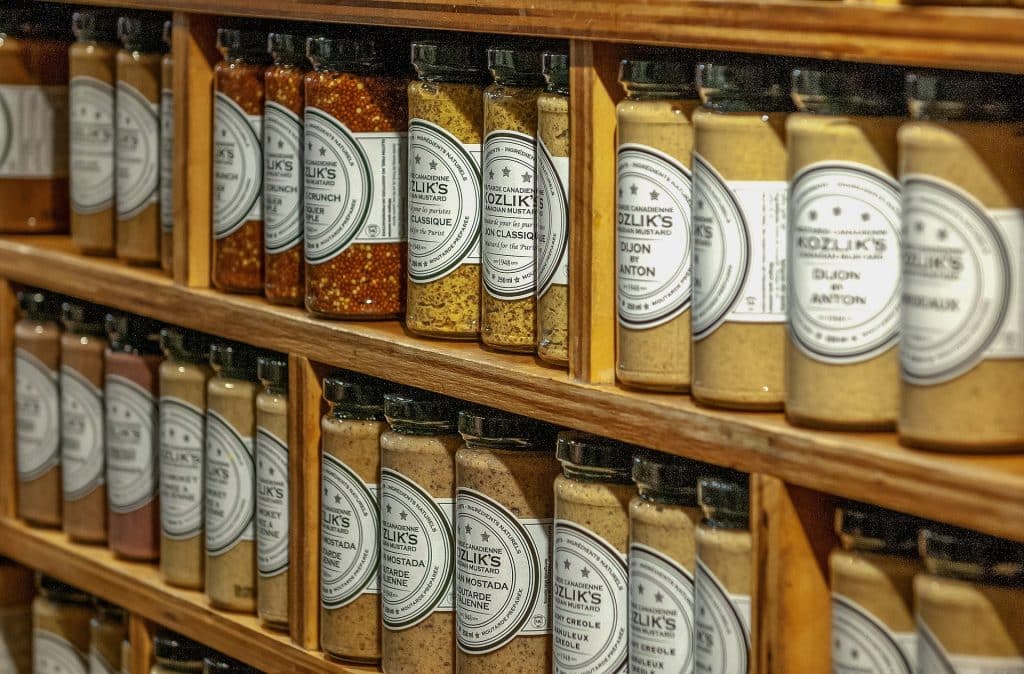Can Dogs Eat Mustard? A Vet’s Opinion

Mustard has anti-inflammatory properties, but can you feed mustard to your dog?
Spices and other compounds in mustard, especially in excessive amounts, are toxic to dogs. Vinegar, which is a component of mustard, might irritate a dog’s stomach and cause digestive problems. It’s advisable to steer clear of feeding your dog any human meals that include spices or other elements that could be bad for their health.
Benefits Of Mustard For Dogs
There is some evidence to suggest that extremely little amounts of plain mustard (without added spices or other ingredients) may have some benefits for dogs, even though mustard is not advised for dogs due to its possibly dangerous components. Small amounts of acetic acid, which is present in mustard, might enhance digestion and encourage the development of good gut bacteria. However, the dangers of giving mustard to dogs, such as the possibility of upset stomach and other health problems, typically outweigh any potential advantages.
To avoid giving your dog mustard, serve them a balanced, nutritionally complete meal that is designed especially for dogs. The ideal course of action is to speak with your veterinarian if you have worries about your dog’s digestion or general health.
For instance, glucosinolates, which are organic substances with antioxidant and anti-inflammatory characteristics, are found in mustard seeds. These qualities may be able to support a dog’s immune system and lessen body-wide inflammation.
It’s crucial to remember that mustard contains only a small amount of glucosinolates and that there are safer and more effective ways to add these nutrients to your dog’s diet. For instance, you can include the right number of cruciferous vegetables like broccoli and cauliflower to your dog’s meals because they are strong providers of glucosinolates.
Overall, even though some of the components in mustard may have some possible health benefits, it’s best to keep your dog away from mustard and any other human foods that can be bad for their health.

How To Safely Give Mustard To Dogs
As was previously said, mustard is not advised for dogs because it contains spices and other unsuitable elements. Therefore, it’s crucial to refrain from feeding your dog mustard or any other human foods that can be unhealthy for them.
The greatest way to give your dog additional nutrition or other health benefits is through a balanced, suitable diet that is created especially for your dog’s unique needs. To make sure that your dog is receiving all the required nutrients in the right amounts, you may need to speak with a veterinarian or a veterinary nutritionist.
It’s generally advisable to stick with dog diets that are recognized to be safe rather than feeding them potentially dangerous human foods. You should call your veterinarian right away if you think your dog may have ingested mustard or any other poisonous substance. They can offer advice on how to handle any potential negative effects and stop any future health damage to your dog.
Will Mustard Make A Dog Sick?
If given to dogs frequently or in big doses, mustard can make them sick. Garlic and onions, which are found in mustard, can be hazardous to dogs when consumed in excessive quantities. In addition, mustard includes vinegar, which can upset a dog’s stomach and create digestive problems.
Dogs who have consumed too much mustard may experience vomiting, diarrhea, gastrointestinal pain, appetite loss, lethargy, and in more serious cases, tremors, seizures, and respiratory trouble.
You should call your veterinarian right away if you think your dog may have ingested mustard or any other poisonous substance. They can offer advice on how to handle any potential negative effects and stop any future health damage to your dog. In general, it’s better to refrain from giving your dog any human foods that can be bad for their health and stick to a healthy, balanced diet that is tailored to meet each dog’s unique nutritional requirements.
If ingested in large quantities or frequently, other mustard-flavored foods can also make dogs sick. This covers other mustard varieties such mustard sauce, mustard powder, and mustard seeds.
The same substances found in cooked mustard are also present in mustard powder and mustard seeds, including glucosinolates, which may induce inflammation and digestive problems in canines. In addition, mustard sauce and other condiments frequently include other seasonings and substances, such onion and garlic, that may be toxic to dogs.
It’s crucial to call your vet straight away if your dog displays symptoms like vomiting, diarrhea, abdominal pain, or lethargy after ingesting any type of mustard or something that contains mustard. In general, it’s better to refrain from giving your dog any human foods that can be bad for their health and stick to a healthy, balanced diet that is tailored to meet each dog’s unique nutritional requirements.

Vet’s Summary
Veterinarians advise against feeding mustard to dogs because it contains spices and other potentially dangerous components. Garlic and onions, which are found in mustard, can be hazardous to dogs when consumed in excessive quantities. In addition, mustard includes vinegar, which can upset a dog’s stomach and create digestive problems. Additionally, the high sodium content of mustard can be detrimental to canines, particularly those who already have underlying medical conditions like kidney illness.
Even though some of the components in mustard may have some possible health benefits, it’s recommended to keep your dog away from mustard and any other human foods that can be bad for their health. Instead, it’s crucial to feed your dog a diet that is adequate, balanced, and tailored to meet each of their distinct needs. To make sure that your dog is receiving all the required nutrients in the right amounts, you may need to speak with a veterinarian or a veterinary nutritionist.
The best course of action is to speak with your veterinarian if you have any queries or worries regarding your dog’s diet or nutrition. They can offer suggestions on how to make sure your dog is getting the right diet to maintain their general health.
As they include living microorganisms that can support the health and balance of the gut microbiota, probiotics can be advantageous for dogs. Despite the fact that there is no clear link between probiotics and mustard for dogs, some pet owners may decide to include probiotics to their dog’s diet to assist their digestive health.
Overall, if you want to add probiotics to your dog’s diet, it’s crucial to pick a high-quality supplement that is especially made for canines and to adhere to the dosage and administration guidelines provided by the manufacturer. It’s always better to speak with your veterinarian if you have any worries or inquiries about probiotics or your dog’s diet.
Videos To Watch
If you are wondering whether you can feed mustard to your dog, watch this:
This video guides about both good and bad effects of mustard on dogs. Some mustard varieties can be safe for dogs, however other mustard varieties can be harmful. Let’s take a closer look at the topic of condiments and dips since it can be confusing.
This video discusses the negative effects of mustard on dogs as well as possible side effects and treatment options.






